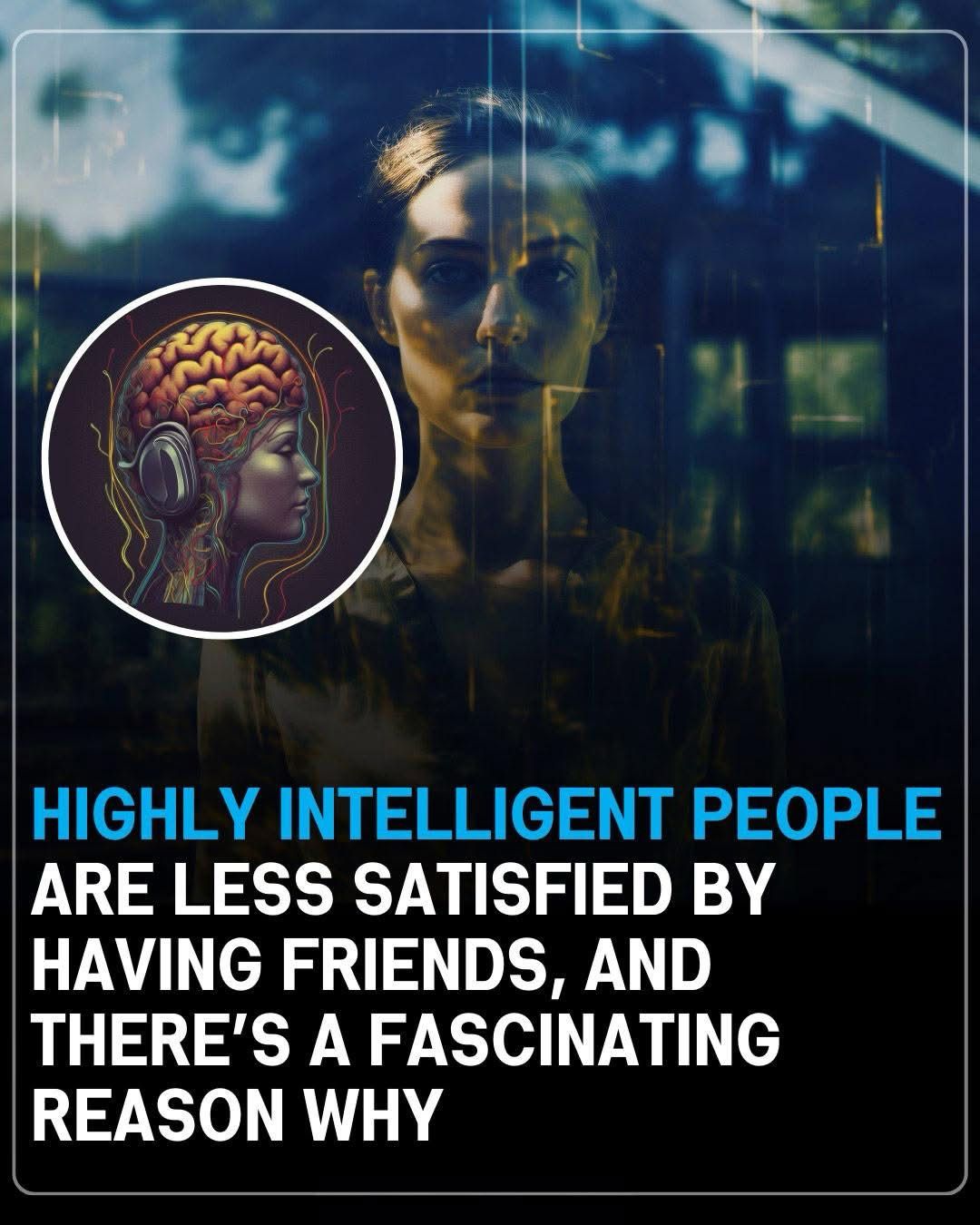Have you ever noticed that some of the smartest people you know aren’t exactly the most social? Maybe you have a friend who would rather stay home working on a passion project or reading a book instead of joining a big group on a Friday night, and you wonder if something’s wrong with them or if they’re just shy or aloof. Surprisingly, science has an eye-opening explanation for this behavior, and it turns out that highly intelligent people often have fewer friendships and feel less satisfaction when socializing—and once you understand why, it makes perfect sense.

Recent research suggests that if you’re perfectly happy with a tight-knit circle of friends, or even just your own company, it could actually be a sign of higher intelligence. Knowing this back in middle school might have saved a lot of us from feeling bad about not being part of the crowd. So, what’s really going on here? To understand this phenomenon, we have to go way back to our roots when humans lived in small tribes where having close companions was essential for survival. Evolutionary psychologists explain it through the “savanna theory of happiness,” which suggests that our brains are still wired for life in those ancient small groups. Generally, spending time with friends boosts our mood, and meaningful social interactions tend to make most people happier. Have you ever felt that warm, energized feeling after spending a great afternoon with your closest friends?
That’s your ancient brain rewarding you for sticking with your group. On the other hand, feeling stressed or down in overcrowded, impersonal environments fits the script too. Studies have shown that people are usually less happy in densely populated areas and feel happier when they frequently socialize with close friends. But if socializing generally boosts happiness, why would smarter people feel less satisfied when they do it? Shouldn’t intelligent people realize that hanging out equals happiness and be eager to collect friends? The answer lies in how highly intelligent individuals seem to break the usual rules. A fascinating 2016 study published in the British Journal of Psychology surveyed over 15,000 people and found that, for the general population, socializing more often was linked to greater life satisfaction. However, for people with the highest IQs, that pattern was either diminished or even reversed. Frequent socializing that made most people happier seemed to tire out or even lower life satisfaction for the highly intelligent. It’s as if more social time doesn’t provide the same happiness boost and can even be a drain.
This doesn’t mean that smart people dislike friends; it simply means that constant social interaction isn’t necessarily what fuels their sense of well-being. Most people feel lonely or unhappy without regular social time, but highly intelligent people often feel perfectly fine—or even better—spending time alone working on personal interests. This surprising “happiness paradox” suggests that for highly intelligent individuals, too much socializing can detract from other pursuits that bring deeper satisfaction. So, why exactly does this happen? Researchers believe there are several explanations.
First, highly intelligent people tend to prioritize meaningful goals over extensive social interaction, pouring their energy into career advancements, creative projects, or mastering skills rather than filling their schedules with social events. Second, they value quality over quantity in friendships, preferring a few deep, meaningful connections over a large network of acquaintances. Third, they adapt more easily to modern environments where constant social interaction isn’t as necessary for survival, meaning they’re less tied to ancestral needs for constant companionship. Lastly, many highly intelligent individuals find fulfillment in solitary activities like writing, painting, coding, or inventing. To them, alone time isn’t lonely—it’s deeply enriching. A real-world example could be someone like Alex, a brilliant software developer who would rather spend weekends coding an app that could change education rather than attending every social gathering. Sure, Alex enjoys catching up with close friends now and then, but frequent outings leave him feeling drained and anxious about his goals. Maintaining a couple of deep, understanding friendships suits him perfectly and mirrors what research has uncovered about highly intelligent individuals. Not every genius is a loner, of course, but overall, highly intelligent people are more likely to be content with a smaller social circle. In the end, this fascinating insight reminds us that happiness doesn’t look the same for everyone. For some, fulfillment comes from big social lives, and for others, it comes from quiet moments spent chasing passions and building meaningful connections.





